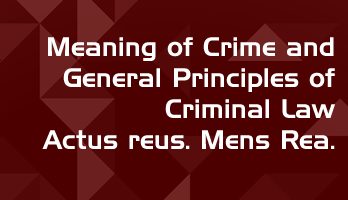Free Full Course Available on LawMint's YouTube Channel
How to Land Your Dream LLB Internship in a Top Law Firm
- Part 1 - Introduction
- Part 2 - Internship Planning
- Part 3 - Internship Research
- Part 4 - Building Your Profile
- Part 5 - The Email
- Part 6 - The Resume
- Part 7 - The Cover Letter
- Part 8 - The Interview
- Part 9 - Self Development
Practical and comprehensive course, with real examples and step-by-step analysis of the complete internship application process. Check out LawMint's YouTube channel now!
Role of Custom in Parsi Law relating to Marriage
Parsi immigrants came to India to escape religious persecution by the Arab conquerors of Persia. Immigrant Parsis adopted the customs of the place where they had first been given shelter. Parsis follow distinct rites of passage that start at birth and then the ceremony of ‘navjote’ is performed to initiate the child into the Zoroastrian religion.
Their marriage ceremony takes place after sunset, and they follow their own customary rites of marriage according to their religious text ‘Avesta’. Priests perform religious rites during marriage and ‘Hathevaro’ (right hand-fastening) of bride and bridegroom is done. Amidst chanting of prayers from their religious texts, the marriage is completed.
Only when the priests (‘Dastoorji’) certify the marriage, is the marriage completed. Parsi priests cannot perform religious rites if a Parsi boy marries a non-Parsi girl or vice –versa.
Parsis believe in the Custom that a person can become a Parsi only by birth. Hence, if a person who is a Hindu, converts himself to Parsi, he would not be allowed to get any Parsi social and religious benefit.
If a Parsi girl marries a non-Parsi boy, she will lose any rights in Parsi property and society. For example, J.R.D. Tata married a French Christian and she changed religion and was initiated into Zoroastrianism, but she was not allowed to claim any benefit of the Parsi society. However, the children born out of their marriage are allowed entry into the Parsi fold.
The converted Parsis are not allowed entry into their religious precincts or participation in any religious ceremonies.
The first Parsi settlement in India was in a village called “Sanjan” in Gujarat around the year 716 A.D. This place was then ruled by the Hindu chieftain, Jadi Rana. Rana gave permission to Parsis to settle down in his principality on four conditions:
(a) that the Parsis would adopt the language of the country,
(b) they would not bear arms,
(c) their women would dress in Hindu fashion,
(d) they would perform their marriage ceremonies after sunset in accordance with Hindu customs.
They agreed to these conditions and settled there. However, they did not relinquish their own religion, i.e., Zoroastrianism and traditions, such as rites of passage.
Custom Relating to Parsi Adoption
Amongst Parsis, there is a well-recognized ‘Custom’ of nominating a son or ‘Palak’ for adoption. There is no direct reference to this religious command in the existing Holy Avesta Scriptures, yet the Parsis practice it since ages.
The ‘Palak’ adoption is not in the sense of a child being taken in a family with all the rights, social, religious or civil, of the adoptive father. It is not by way of conferring any right on the ‘adopted’ son, but it is the imposition of a duty on him – the duty of get performing the after-death ceremonies of the ‘adoptive’ father for the progress and onward journey of his Ruvan (soul) in the next world.
Thus, we can see that Parsi adoption is altogether a different custom than others where the adoption confers all civil rights on the adopted son or daughter.
Custom on Parsi Succession
In matters of succession, Parsis have followed different ‘Customs’ till the codification of law during British times in 1865. Parsi Panchayats (or, Parsi Anjuman) were given the jurisdiction to adjudicate on issues relating to marital discord, succession, domestic strife, and land issues etc.
When there is no successor of the deceased, the property passes on to the Panchayat, which gives monetary benefit to the Parsis in times of need, such as extreme poverty whereby a person could be forced to beg or go for prostitution.
These Panchayats are composed of leading and influential members of the Parsi community. These bodies are also responsible for taking care of ‘Towers of Silence’, which are the last resting place of the Parsis.
Parsis residing in mofussil areas, during British rule, were governed by their ‘Customary Law’ whereas those living in Presidency areas were governed by English law. For example, Parsi woman, in a mofussil area, had only a right to maintenance when her husband died. In Presidency town, however, a widow had an absolute right to a one-third share of her husband’s property.
The daughter of the deceased, in Presidency areas, was treated at par with the son.
Role of Legislation on the Parsi Law and its Judicial Review
The main legislations enacted by the Indian Parliament regulating the Personal Law of Parsis are :
(a) The Divorce Act, 1869;
(b) Juvenile Justice (Care and Protection of Children) Act, 2000;
(c) The Indian Succession Act, 1925;
(d) The Parsis Marriage and Divorce Act, 1936; and
(e) The Parsis Intestate Succession Act, 1865
Legislation on Parsi Marriage & Divorce
The Indian Parliament has regulated Parsi marriages and divorces by enacting special laws for them entitled ‘The Parsi Marriage and Divorce Act, 1936’ which has been amended to some extent in 1988.
This Act defines a Parsi as a person who is Parsi Zoroastrian. However, you might wonder about a situation when a Parsi boy marries a non-Parsi girl, what would be the religion of their children? Similarly, if a Parsi girl marries a non-Parsi boy, what would be the religion of their children? These questions are not answered by the Act.
To know the answer, we would have to look at judicial precedents. In a case decided by the Bombay High Court, the Court observed that the children of a Parsi father and a non-Parsi mother are Parsi provided they are admitted to the Parsi religion and profess the Zoroastrian faith.
The children of a Parsi mother and non-Parsi father, however, would not be Parsi (Sir Dinshaw Maneckji v. Sir Jamshedji). According to this Act, Parsi marriage can be invalid if any of the three acts have been committed:
- (a) when the contracting parties are related to each other in any degrees of consanguinity or affinity (for example, a man shall not marry his sister’s son’s wife, and a woman shall not marry her sister’s daughter’s husband);
- (b) when the marriage is not solemnized according to Parsi form of ceremony called “Ashirvad” by the priest in the presence of two Parsi witnesses other than the priest himself; or
- (c) when the contracting parties are not adults, i.e., the male has not completed 21 years of age, and the female has not completed 18 years of age.
You might again think about a situation when a minor Parsi boy marries a Parsi girl and a child is born, would that child be illegitimate? The answer is given by this Act and it says that the child would be called legitimate.
Procedures to be followed for solemnization of Parsi Marriage
The marriage contracted under this Act shall, immediately on the solemnization thereof, be certified by the officiating priest. The certificate shall be signed by the said priest, the contracting parties and two witnesses present at the marriage.
The priest shall thereupon send such certificate together with a prescribed fee to be paid by the husband to the Registrar of the place at which such marriage is solemnized. Any priest knowingly and willfully solemnizing any marriage contrary to these conditions shall be punished with simple imprisonment for a term which may extend to six months, or with fine, or with both.
Ten grounds for divorce are also provided in this Act. Those are:
- (a) non-consummation of marriage;
- (b) unsound mind;
- (c) bride was pregnant at the time of marriage;
- (d) commission of adultery, rape, or unnatural offence;
- (e) cruelty;
- (f) infection by venereal disease or causing grievous hurt to each other;
- (g) imprisonment of seven years;
- (h) desertion for two years;
- (i) separation from each other and no marital intercourse; and
- (j) conversion to any other religion.
One more ground has been added in the year of 1988, i.e., divorce by mutual consent. If the contracting parties are living separately for a period of one year or more, and they have not been able to live together, and they have mutually agreed that the marriage should be dissolved, such divorce may be granted by the court.
Jurisdiction of the Courts in Parsi Matrimonial disputes
Separate Courts are also constituted for the adjudication of Parsi matrimonial disputes. In each of the Presidency towns of Mumbai, Chennai, and Kolkata, Parsi Chief Matrimonial Courts are established in the High Courts of these cities.
These Chief Matrimonial Courts are aided by five Parsi delegates who are residents of the city and are willing to express their opinion in Parsi matrimonial disputes. These delegates are appointed by the State government.
Similarly, a Parsi Matrimonial Court can also be constituted at a place other than Presidency town, and those Courts are called Parsi District Matrimonial Courts.
Law on Parsi Adoption
The legislature has not passed any special legislation to deal with Parsi adoption, except Parsi Intestate Succession Act, 1865, wherein it did not recognize an adopted son as a Parsi heir. Therefore, Parsi couples wishing to adopt a child could not have done so except for religious purposes.
The Court has accepted the customary practice of adoption, i.e., Palak for religious purposes (Jehangir Dadabhoy v. Kaikhushru Kavasha).
However, Parsi couples wishing to adopt a child may do so under a new legislation, named ‘The Juvenile Justice (Care and Protection of Children) Act, 2000’.
Law on Parsi Succession
Matters relating to Parsi succession are provided for in the Indian Succession Act, 1925. Before this Act was passed, there was Parsi Intestate Succession Act, 1865 which dealt with this issue.
Now, Indian Succession Act has a separate Chapter III which deals with Parsi intestate succession. Intestate Succession means a succession where the deceased did not make any will before death.
Questions
Why did the Parsi’s adopt local customs upon their arrival in India?
Parsis adopted the local Customs of India because :
(a) at the time of their first arrival, on the condition laid down by the local ruler was that they would follow India’s local custom of the place whey they were allowed to settle; and
(b) they were not temporary settlers, but they had been a victim of religious persecution in their home land. So they adopted local custom due to long settlement and gave respect to the local customs.
Free Full Course Available on LawMint's YouTube Channel
How to Land Your Dream LLB Internship in a Top Law Firm
- Part 1 - Introduction
- Part 2 - Internship Planning
- Part 3 - Internship Research
- Part 4 - Building Your Profile
- Part 5 - The Email
- Part 6 - The Resume
- Part 7 - The Cover Letter
- Part 8 - The Interview
- Part 9 - Self Development
Practical and comprehensive course, with real examples and step-by-step analysis of the complete internship application process. Check out LawMint's YouTube channel now!
Acknowledgement : This article is adapted from Swayam – NIOS course material.












